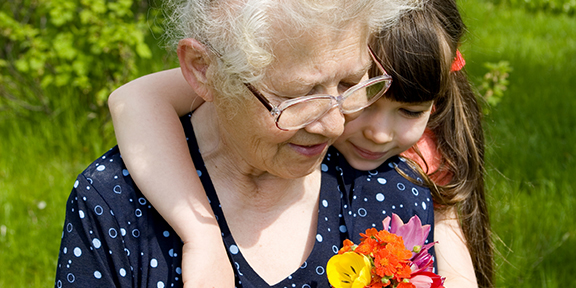If you look at human nature, most of our very base behavior is designed for procreation and survival of the species. A pregnant woman produces hormones that calm and pacify her so that the baby’s cries are a beckoning call and not a message to run from the cave. It’s not just cultural—it’s chemical. Young taut bodies attract the strongest mate for producing the healthiest offspring. Nesting in any culture is the gravitational pull of domesticity. Pheromones reach out and touch someone without the benefit of AT&T. We think we’re in control but we’re not. With the exception of society’s ills leading our instincts astray, we are programmed to produce and protect our young. It may offend your sophisticated sense of purpose, but you were put here to mate.
I was meeting with my accountant the other day and he told me of a call-in radio program about this very subject. One caller pointed out that women outlive men and asked how this contributed to the survival of the species since men at an advanced age could still produce children but women could not. I suddenly felt the assessments of debits and credits had left the balance sheet and attached themselves to me personally. My accountant seemed to be commenting not on my net worth but my reason for existing at all. It was a little unsettling. He’s a terrific accountant but I’m not convinced he’s qualified to assess my reason for being.
So the question stood between us, “What are grandmothers for anyway?” Having recently become a grandmother, I was appalled at the very question. I was torn between finding another accountant and finding the answer.
“Knowledge,” he announced. The experts declared that grandmothers lived longer to pass to the youngest generation the knowledge of our families, our culture, our species. A purpose. A noble purpose indeed.
But knowledge is more than facts and customs. My granddaughter will learn those things from her own generation. What I can impart is what I’ve learned about being a human being.
It’s a special relationship—this role called grandparent. As a parent your job is to protect, teach, provide for and nurture. It’s a tough load to carry. As a grandparent I share these responsibilities but my main focus is to love her, to accept her unconditionally and give all I have of myself.
When my own children were born I was clueless. I’d never been around children and couldn’t understand why anyone would want one. But the chemistry of procreation took over and I wanted motherhood. I now see that my grown children are exactly who they were at the age of one. In temperament, disposition, the way they approach the world, I so clearly see the people they’ve become in the babies they were.
I can now look at my granddaughter and see who she really is. I now know the core character I see is who she will be as an adult.
While I didn’t work when my own children were young, I did succumb to the demands of farm and household. It seems that often when my wee ones were occupied I saw it as an opportunity to do the dishes or feed the chickens. I now spend every Sunday afternoon with my granddaughter and stolen moments they are. At first I thought I was doing it for her…being a good grandparent giving her my full and undivided attention.
But I realize these afternoons are as much for me. In the small things we do together—drawing on the sidewalk, exploring Waller Creek, making French toast—I find the passing of caring to this youngest generation. Jokes about grandparents spoiling grandchildren abound. Play with ’em and send ’em home to be disciplined. The relationship is not that simple.
I am fortunate to have had good role models in grandparents. They showed me a way of looking at things my parents were incapable of showing me. While my mother was busy, my grandfather took me into the far corner of the back yard. He had set the scene for me by digging a small hole in the ground and placing in it a mirror surrounded by moss and small flowers. On the top he placed a piece of glass and covered the edges with grass. We sat for hours while he told me stories of the little people who lived in the earth and if I looked in his “window in the earth” at the right time I could see one of them. He was a doctor with a busy schedule but used his “stolen moments” to share his knowledge of being a human being with me. I hope I can do as well. After all, it’s the only reason I’m here.

